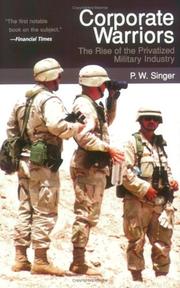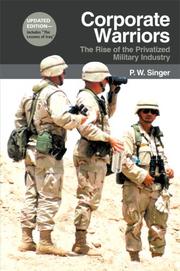| Listing 1 - 10 of 28 | << page >> |
Sort by
|
Book
ISBN: 1478090057 Year: 2020 Publisher: Durham : Duke University Press,
Abstract | Keywords | Export | Availability | Bookmark
 Loading...
Loading...Choose an application
- Reference Manager
- EndNote
- RefWorks (Direct export to RefWorks)
"TECHNOCRATS OF THE IMAGINATION traces the rise of collaborative art and technology labs in the U.S. from WWII to the present. Ryan Bishop and John Beck reveal the intertwined histories of the avant-garde art movement and the military-industrial complex, showing how radical pedagogical practices traveled from Germany's Bauhaus movement to the U.S. art world and interacted with government-funded military research and development in university laboratories. During the 1960s both media labs and studio labs leaned heavily on methods of interdisciplinary collaboration and the power of American modernity to model new modes of social organization. The book's chapters take up MIT's Center for Art, Science, and Technology, Bell Labs's E.A.T. (Experiments in Art and Technology) Salon, and Los Angeles Museum of Art's Art + Technology Program. Their interconnected history illuminates how much of contemporary media culture and aesthetics depends on the historical relationship between military, corporate, and university actors. In light of revived interest in Black Mountain College and other 1960s art and technology labs, this book draws important connections between the contemporary art world and the militarized lab model of research that has dominated the sciences since the 1950s. The authors situate the rise of collaborative art and technology projects in the 1960s within John Dewey's ideology of scientific democracy, showing how leading thinkers from the Bauhaus movement in Germany immigrated to the U.S. and brought with them a Deweyan model for collaborative and interdisciplinary art and technology research. Over the course of the decade, the U.S. government increased funding to scientific research at university and private laboratories. Beck and Bishop investigate how various art and technology projects incorporated the collaborative and innovative interdisciplinarity of the avant-garde art movement with the corporate funding structure driven by the U.S. government's military and technoscientific interests. Finally, the authors consider the legacy of 1960s art and technology projects. During the 1970s and 80s, defense R&D funding was less motivated by a Cold War corporate state, and was instead restructured according to an entrepreneurial and neoliberal model. At the same time, funding in the art world also became increasingly financialized and globalized. Today's art and technology work happens collaboratively not because of an intellectual commitment to interdisciplinarity, but because of the precarity of the contemporary labor market. This book will interest students and scholars in art history and theory, media studies, history of technology, American studies, cultural studies, and critical university studies"--
Book
Year: 2020 Publisher: London, England : University of London Press,
Abstract | Keywords | Export | Availability | Bookmark
 Loading...
Loading...Choose an application
- Reference Manager
- EndNote
- RefWorks (Direct export to RefWorks)
The war of 1914-18 was the first great conflict to be fought between highly industrial societies able to manufacture and transport immense quantities of goods to the field of battle. In 'Civilian Specialists at War', Christopher Phillips examines the manner in which Britain's industrial society influenced the character and conduct of industrial warfare. This book analyses the multiple connections between the military, the government and the senior executives of some of pre-war Britain's largest companies. It illustrates the British army's evolving response to the First World War and the role to be played by non-military expertise in the prosecution of such a conflict.This study demonstrates that pre-existing professional relationships between the army, the government and private enterprise were exploited throughout the conflict. It details how civilian technologies facilitated the prosecution of war on an unprecedented scale, while showing how British experts were constrained by the political and military demands of coalition warfare. 'Civilian Specialists at War' reveals that Britain's transport experts were a key component in the country's conduct of the First World War.
Book
ISBN: 1949762238 Year: 2020 Publisher: Clarity Press
Abstract | Keywords | Export | Availability | Bookmark
 Loading...
Loading...Choose an application
- Reference Manager
- EndNote
- RefWorks (Direct export to RefWorks)
"The War Industry infests the American economy like a cancer, sapping its strength and distorting its creativity while devouring its treasure. Stunning in the depth of its research, Understanding the War Industry documents how the war industry commands the other two sides of the military-industrial-congressional triangle. It lays bare the multiple levers enabling the vast and proliferating war industry to wield undue influence, exploiting financial and legal structures, while co-opting Congress, academia and the media. Spiked with insights into how corporate boardrooms view the troops, overseas bases, and warzones, it assiduously delineates how corporations reap enormous profits by providing a myriad of goods and services devoted to making war, which must be rationalized and used if the game is to go on: advanced weaponry, drones and nukes; invasive information technology; space-based weapons; and special operations--with contracts stuffed with ongoing and proliferating developmental, tertiary and maintenance products for all of it."--
Defense industries --- Military-industrial complex --- United States.
Book
ISBN: 0820350133 Year: 2016 Publisher: Athens, GA : Baltimore, Md. : University of Georgia Press, Project MUSE,
Abstract | Keywords | Export | Availability | Bookmark
 Loading...
Loading...Choose an application
- Reference Manager
- EndNote
- RefWorks (Direct export to RefWorks)
World War, 1939-1945 --- Military-industrial complex --- Industrial policy --- Industrial mobilization --- History. --- History
Book
ISBN: 149850907X 9781498509077 9781498509060 1498509061 Year: 2015 Publisher: Lanham, Maryland : Lexington Books,
Abstract | Keywords | Export | Availability | Bookmark
 Loading...
Loading...Choose an application
- Reference Manager
- EndNote
- RefWorks (Direct export to RefWorks)
This book explores Socialist economic and military cooperation by presenting a complete branch, the military industry, from the perspective of a smaller member nation, Hungary. It demonstrates that military industry cooperation played a prominent role in the development of economic cooperation within the Soviet Bloc, and it was in this sector that the strongest, most efficient integration was established.
Military-industrial complex --- Defense industries --- History --- Hungary --- Communist countries --- Foreign economic relations.

ISBN: 0801489156 0801441145 9780801441141 9780801489150 0801459893 Year: 2007 Publisher: Ithaca, NY : Cornell University Press,
Abstract | Keywords | Export | Availability | Bookmark
 Loading...
Loading...Choose an application
- Reference Manager
- EndNote
- RefWorks (Direct export to RefWorks)
Some have claimed that "War is too important to be left to the generals," but P. W. Singer asks "What about the business executives?" Breaking out of the guns-for-hire mold of traditional mercenaries, corporations now sell skills and services that until recently only state militaries possessed. Their products range from trained commando teams to strategic advice from generals. This new "Privatized Military Industry" encompasses hundreds of companies, thousands of employees, and billions of dollars in revenue. Whether as proxies or suppliers, such firms have participated in wars in Africa, Asia, the Balkans, and Latin America. More recently, they have become a key element in U.S. military operations. Private corporations working for profit now sway the course of national and international conflict, but the consequences have been little explored.In Corporate Warriors, Singer provides the first account of the military services industry and its broader implications. Corporate Warriors includes a description of how the business works, as well as portraits of each of the basic types of companies: military providers that offer troops for tactical operations; military consultants that supply expert advice and training; and military support companies that sell logistics, intelligence, and engineering.This updated edition of Singer's already classic account of the military services industry and its broader implications describes the continuing importance of that industry in the Iraq War. This conflict has amply borne out Singer's argument that the privatization of warfare allows startling new capabilities and efficiencies in the ways that war is carried out. At the same time, however, Singer finds that the introduction of the profit motive onto the battlefield raises troubling questions-for democracy, for ethics, for management, for human rights, and for national security.
Defense industries --- Military-industrial complex --- Privatization --- huurlingenorganisatie --- 35.078 --- 328.182:355 --- -Military-industrial complex --- -35.078 --- 855.2 Private actoren --- Industrial-military complex --- Armaments industries --- Arms sales --- Military sales --- Military supplies industry --- Munitions --- Sale of military equipment --- Vormen van overheidsbemoeing. Opheffing van overheidstussenkomst. Privatisering --- Militairindustrieel complex. Oorlogsindustrie als pressie. Military-industrial complex --- 328.182:355 Militairindustrieel complex. Oorlogsindustrie als pressie. Military-industrial complex --- 35.078 Vormen van overheidsbemoeing. Opheffing van overheidstussenkomst. Privatisering --- Industries --- Arms transfers --- United States --- Military policy. --- Polemology --- Defense industries - United States --- Military-industrial complex - United States --- Privatization - United States --- United States of America --- Defense industries. --- Military-industrial complex. --- Privatization.

ISBN: 1849642095 1281725536 9786611725532 143566129X 9781849642095 9781281725530 6611725539 0745321151 9780745321158 0745321143 9780745321141 Year: 2004 Publisher: London Sterling, Va. Pluto Press
Abstract | Keywords | Export | Availability | Bookmark
 Loading...
Loading...Choose an application
- Reference Manager
- EndNote
- RefWorks (Direct export to RefWorks)
Ballistic missile defenses --- Astronautics, Military --- Space weapons. --- Space warfare. --- Space surveillance --- Militarism --- Military-industrial complex --- United States --- Military policy.

ISBN: 0801459893 9780801459894 0801474361 9780801474361 Year: 2010 Publisher: Ithaca, NY
Abstract | Keywords | Export | Availability | Bookmark
 Loading...
Loading...Choose an application
- Reference Manager
- EndNote
- RefWorks (Direct export to RefWorks)
Some have claimed that "War is too important to be left to the generals," but P. W. Singer asks "What about the business executives?" Breaking out of the guns-for-hire mold of traditional mercenaries, corporations now sell skills and services that until recently only state militaries possessed. Their products range from trained commando teams to strategic advice from generals. This new "Privatized Military Industry" encompasses hundreds of companies, thousands of employees, and billions of dollars in revenue. Whether as proxies or suppliers, such firms have participated in wars in Africa, Asia, the Balkans, and Latin America. More recently, they have become a key element in U.S. military operations. Private corporations working for profit now sway the course of national and international conflict, but the consequences have been little explored.In Corporate Warriors, Singer provides the first account of the military services industry and its broader implications. Corporate Warriors includes a description of how the business works, as well as portraits of each of the basic types of companies: military providers that offer troops for tactical operations; military consultants that supply expert advice and training; and military support companies that sell logistics, intelligence, and engineering.This updated edition of Singer's already classic account of the military services industry and its broader implications describes the continuing importance of that industry in the Iraq War. This conflict has amply borne out Singer's argument that the privatization of warfare allows startling new capabilities and efficiencies in the ways that war is carried out. At the same time, however, Singer finds that the introduction of the profit motive onto the battlefield raises troubling questions-for democracy, for ethics, for management, for human rights, and for national security.
Defense industries. --- Military-industrial complex. --- Privatization. --- Defense industries --- Military-industrial complex --- Privatization --- Armaments industries --- Arms sales --- Military sales --- Military supplies industry --- Munitions --- Sale of military equipment --- Industries --- Arms transfers --- Denationalization --- Privatisation --- Contracting out --- Corporatization --- Government ownership --- Industrial-military complex --- United States --- Military policy. --- 328.182:355 --- 35.078 --- 35.078 Vormen van overheidsbemoeing. Opheffing van overheidstussenkomst. Privatisering --- Vormen van overheidsbemoeing. Opheffing van overheidstussenkomst. Privatisering --- 328.182:355 Militairindustrieel complex. Oorlogsindustrie als pressie. Military-industrial complex --- Militairindustrieel complex. Oorlogsindustrie als pressie. Military-industrial complex --- Polemology --- Firms and enterprises
Book
Year: 2014 Publisher: Brooklyn, NY punctum books
Abstract | Keywords | Export | Availability | Bookmark
 Loading...
Loading...Choose an application
- Reference Manager
- EndNote
- RefWorks (Direct export to RefWorks)
"The Berkeley School of Criminology stands, to this day, as one of the most significant developments in criminological thought and action. Its diverse participants, students and faculty, were true innovators, producing radical social analyses (getting to the roots causes) of institutions of criminal justice as part of broader relations of inequality, injustice, exploitation, patriarchy, and white supremacy within capitalist societies. Even more they situated criminology as an active part of opposition to these social institutions and the relations of harm they uphold. Their criminology was directly engaged in, and connected with, the struggles of resistance that emerged in the late 1960s and early 1970s. Not surprisingly perhaps, they became a target of regressive and reactionary forces that sought to quiet those struggles. Notably the Berkeley School of Criminology was targeted by key players in the US military-industrial complex such as Ronald Reagan himself, then Governor of California and Regent of UC-Berkeley.Who Killed the Berkeley School? by Julia and Herman Schwendinger, key players in the Berkeley School, is the first full-length, in-depth analysis, of the Berkeley School of Criminology, its participants, and the attack against it. It tells the story of an important infrastructure of resistance, a resource of struggle, and how it was dismantled. It lays bare the role not only of conservatives but of liberal academics and false critical theorists, who failed to stand up in defense of the School and its work when called upon.This is a story with profound lessons in the current period of corporatization of campuses, neoliberal education, and market-driven curricula. It will be of interest to anyone concerned with developing resistance to the corporate campus and seeking critical alternatives. It also stands as a challenge to social science disciplines, including criminology, to develop a practice that identifies the roots of social injustice and organizes to confront it."
Social justice --- Crime --- Critical criminology --- Sociological aspects. --- University of California, Berkeley. --- History. --- California --- criminology --- military-industrial complex --- neoliberalism --- social struggle --- radical politics
Book
ISBN: 0674725263 0674726286 9780674726284 0674727401 9780674725263 9780674727403 Year: 2014 Publisher: Cambridge, Massachusetts
Abstract | Keywords | Export | Availability | Bookmark
 Loading...
Loading...Choose an application
- Reference Manager
- EndNote
- RefWorks (Direct export to RefWorks)
When President Eisenhower referred to the "military-industrial complex" in his 1961 Farewell Address, he summed up in a phrase the merger of government and industry that dominated the Cold War United States. In this bold reappraisal, Katherine Epstein uncovers the origins of the military-industrial complex in the decades preceding World War I, as the United States and Great Britain struggled to perfect a crucial new weapon: the self-propelled torpedo. Torpedoes threatened to upend the delicate balance among the world's naval powers, they were bought and sold in a global marketplace, and they were cutting-edge industrial technologies. But building them required substantial capital investments and close collaboration among scientists, engineers, businessmen, and naval officers. To address these formidable challenges, the U.S. and British navies created a new procurement paradigm: instead of buying finished armaments from the private sector or developing them from scratch at public expense, they began to invest in private-sector research and development. The inventions emerging from torpedo R&D sparked legal battles over intellectual property rights that reshaped national security law. Torpedo blends military, legal, and business history with the history of science and technology to recast our understanding of defense contracting and the demands of modern warfare.
Great Britain. -- Royal Navy -- Weapons systems -- History -- 20th century. --- Military-industrial complex -- Great Britain -- History -- 20th century. --- Military-industrial complex -- United States -- History -- 20th century. --- Torpedoes -- Great Britain -- Design and construction -- History -- 20th century. --- Torpedoes -- United States -- Design and construction -- History -- 20th century. --- United States. -- Navy -- Weapons systems -- History -- 20th century. --- Weapons systems -- Technological innovations -- Case studies. --- World War, 1939-1945 -- Equipment and supplies. --- Torpedoes --- Weapons systems --- World War, 1939-1945 --- Military industrial complex --- Military & Naval Science --- Law, Politics & Government --- Naval Science - General --- Design and construction --- History --- Technological innovation --- Equipment and supplies --- Military-industrial complex --- Technological innovations --- Equipment and supplies. --- United States. --- Great Britain. --- Industrial-military complex --- Weapon systems --- Arms --- Military supplies --- Munitions --- Ordnance --- Supplies --- War materials --- Weapons --- U.S. Navy --- צי הבריטי --- Defense industries --- Engineering systems --- Military weapons --- Explosives, Military --- Submarine warfare --- England and Wales. --- E-books
| Listing 1 - 10 of 28 | << page >> |
Sort by
|

 Search
Search Feedback
Feedback About
About Help
Help News
News